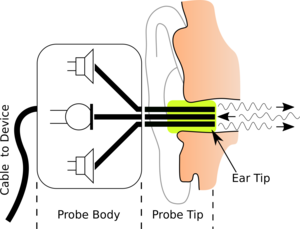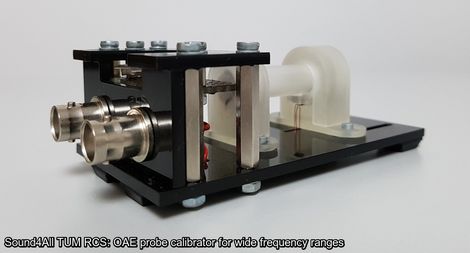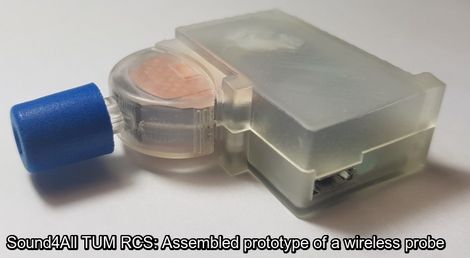Sound4All

Re-engineering High-end Audiometric Devices for Robust and Affordable Audiological Testing
Hearing impairment is one of the most common forms of disability and is widespread in countries like India. Children in rural areas suffer from this because of malnutrition and inadequate medical facilities. In urban areas, many adults are continuously exposed to high levels of noise, particularly in their work environments (e.g., in factories or construction sites). Regular screening helps in early diagnosis of hearing impairment and can be treated. While screening of newborns for hearing loss is slowly gaining momentum in India, it needs to be more widespread. However, monitoring children and adults regularly is almost non-prevalent. This is because the currently available screening equipment is expensive. Further, such equipment may only be used by specialists, who are in shortage. In this project, we are completely re-engineering such screening devices in order to (i) significantly bring down its cost, and (ii) enable it to be used by laypersons in the same manner that we use blood pressure monitors or thermometers. More widespread availability of low-cost screening devices will enable their usage in schools, small healthcare centers, factories and construction sites. This in turn will help with the detection of the onset of hearing impairment and the affected patients may be referred for treatment early on, thereby significantly improving their chances of recovery or to prevent further deterioration. However, in order to significantly reduce the cost of screening devices, the newly designed devices are completely reengineered with new hardware and software architecture, without sacrificing the quality of the screening. Developing such architectures and evaluating them are the main scientific goals of this project. In particular, we are relying on two main techniques: (i) offload the involved signal processing algorithms onto a mobile phone, and (ii) instead of using expensive and specialized probes, as is the case in existing screening equipment, we are investigating to use commercially available off-the-shelf components. This will introduce significant measurement distortions, which will be corrected using suitable signal processing algorithms. Since the usage and penetration of mobile phones even in rural areas in India is relatively high, designs based on such solutions will bring down the manufacturing cost. Further, since processors in mobile phones are now very powerful, the quality of screening may not be significantly sacrificed.
Project
The Sound4All project is an international cooperation between Indian and German partners funded by the IGSTC.
Academic Partners:
Theses and Internships
Available
Available topics are not actively posted. Contact us if you are interested in a thesis or internship in this domain, and we try to find a topic that suits your interests.
Completed
- Implementation and Evaluation of a Short Pulse Distortion Product Otoacoustic Emission Algorithm for Reliable Hearing Diagnostics
- An Objective Hearing Test Based on Distortion Product Otoacoustic Emissions Using Android Smart-phones
- Data Collection and Management in a Standalone Otoacoustic Screening Device
- Measurement of Transient-Evoked Otoacoustic Emissions with only one Speaker
- Requirements and Partitioning of Otoacoustic Emission Measurement Algorithms
- Miniaturized In-Ear Otoacoustic Emission Probe
- Firmware Development and Evaluation of an Inexpensive Otoacoustic Measurement Device
Publications
2017
- Sound4All: Towards affordable large-scale hearing screening, N. Heitmann, P. Kindt, T. Rosner, K. Sikka, A. Chirom, D. Kalyanasundaram, S. Chakraborty, In 12th International Conference on Design & Technology of Integrated Systems In Nanoscale Era (DTIS), Palma, ES. [Preprint PDF]








